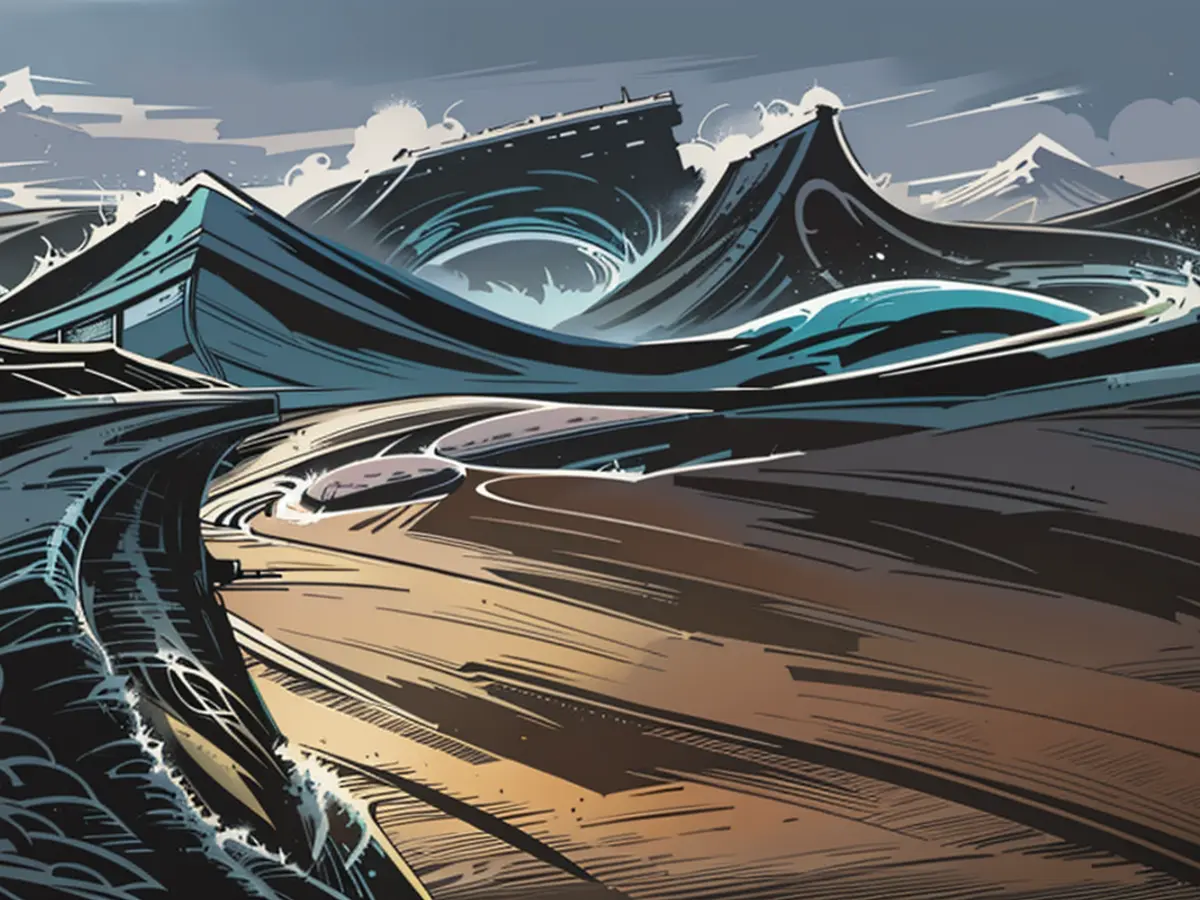World Natural Heritage - UNESCO criticizes Germany because of Wadden Sea activities
The UNESCO criticizes Germany, Denmark and the Netherlands for planned or existing activities and infrastructure projects in the Wattenmeer World Heritage. It sees a threat to the ecosystem.
The responsible committee of the UN Organization for Education, Science, Culture and Communication (UNESCO) approved a corresponding resolution at its 46th session in New Delhi, India, without discussion, according to an UNESCO representative for the German Press Agency. In it, it was stated among other things that the extraction of oil, gas and salt is incompatible with the World Heritage status of the Wattenmeer - and together with the rising sea level could have negative effects on the region.
"The Wattenmeer should not become a loser in the Energy Transition"
The Nature and Biodiversity Conservation Union Germany (NABU) stated that the committee followed this resolution with a complaint from NABU and other environmental organizations. More than ten million water and waterbirds are reportedly dependent on an intact nature on the coast, according to NABU President Jörg-Andreas Kruger.
"Millions of tourists seek relaxation in nature on the North Sea coast - indispensable for coastal communities and the regional economy," said Kruger. "The Wattenmeer World Heritage should not become a loser in the Energy Transition. New drillings risk nature and climate protection, LNG terminals overbuild valuable coastal habitats and cables, water and CO2 pipelines cut through this unique natural area."
Wattenmeer on a par with Grand Canyon and Great Barrier Reef
NABU wishes that cables for offshore power and pipelines in the UNESCO World Heritage area, where possible, could be avoided and preferably laid in the shipping lanes of the Ems, Weser and Elbe, it was stated.
The Wattenmeer recently celebrated the 15th anniversary of the World Heritage title. The UNESCO awarded large parts of the German and Dutch Wattenmeer on June 26, 2009, among other things, due to its great geological and ecological significance as a World Heritage site. With this, the Wattenmeer is on a par with almost 1,200 other World Heritage sites, such as the Grand Canyon or the Great Barrier Reef. In 2011, the Hamburg Wattenmeer title was extended, and in 2014, the Danish one was added.
- The UN expresses concern over activities and projects in the Wattenmeer World Heritage, shared by Germany, Denmark, and the Netherlands, as it perceives a potential threat to the ecosystem.
- The Committee for Education, Science, Culture, and Communication at UNESCO, during its 46th session in New Delhi, India, passed a resolution criticizing the extraction of oil, gas, and salt in the Wattenmeer, citing incompatibility with its World Heritage status.
- The Nature and Biodiversity Conservation Union Germany (NABU) and other environmental organizations raised concerns, suggesting that new drillings and infrastructure projects could harm nature and climate protection, and potentially disrupt valuable coastal habitats.
- NABU proposes that offshore power cables and pipelines, where feasible, should be void of UNESCO World Heritage areas and rerouted through shipping lanes of the Ems, Weser, and Elbe to minimize environmental impact.
- The Wattenmeer, celebrated its 15th anniversary of the World Heritage title in 2019, having received recognition from UNESCO in 2009 due to its geological and ecological importance, comparable to prominent heritage sites such as the Grand Canyon or the Great Barrier Reef.
- Schleswig-Holstein and Lower Saxony, both German states, and Denmark, have parts of the Wattenmeer designated as World Heritage sites, with Hamburg's title being extended in 2011 and Denmark's addition in 2014.
- The Netherlands, like Germany and Denmark, is under scrutiny for its activities and projects in the Wattenmeer, as concerns arise around their potential impact on the region's environment and biodiversity.
- In response to the concerns and criticisms, India, as a UNESCO member, could advocate for stricter environmental regulations and sustainable development policies to protect not only the Wattenmeer, but also other World Heritage sites under threat from energy transition activities and infrastructure projects.






